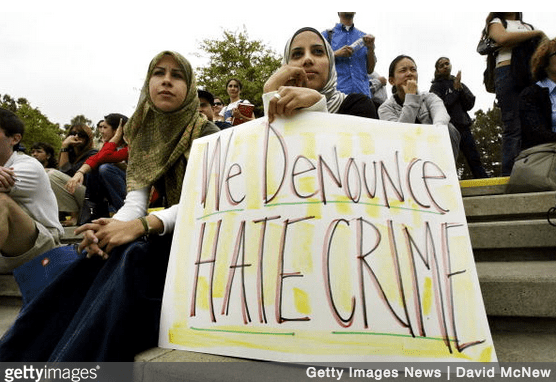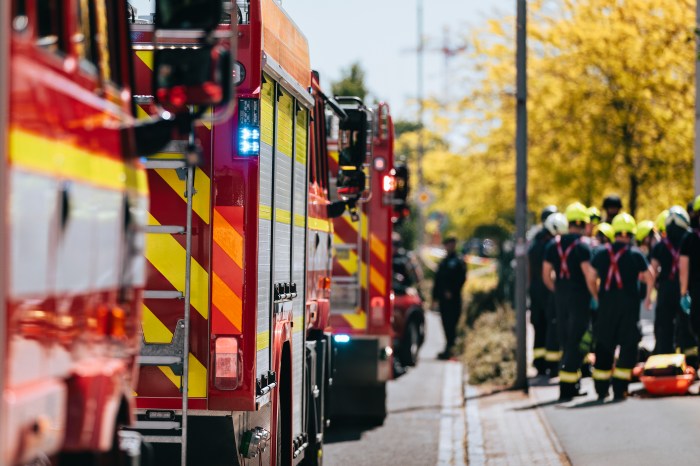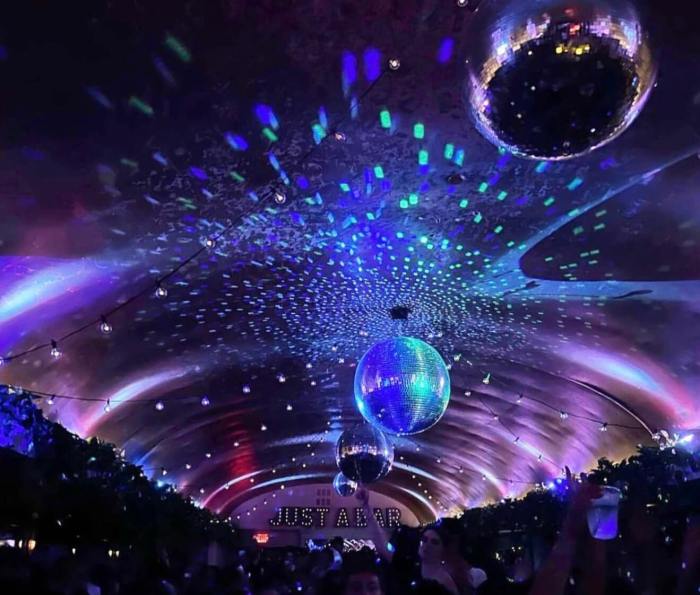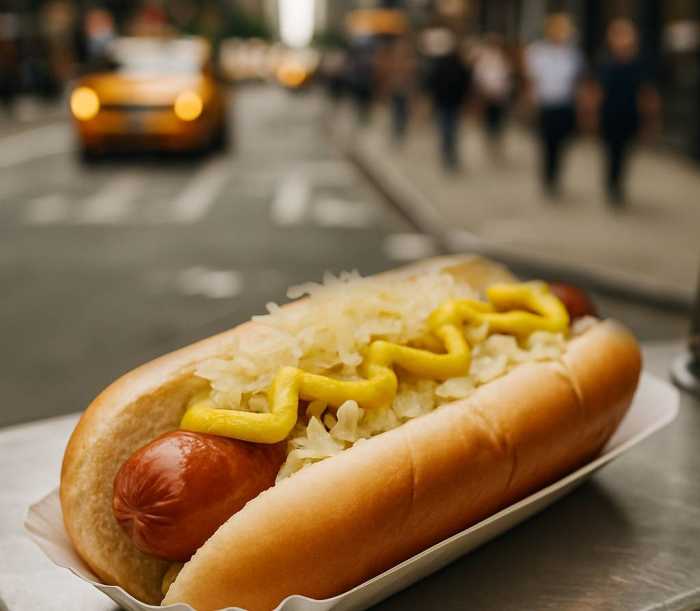The number of hate groups in the United States increased for the second consecutive year—a rise partly attributed to “radical right” groups emboldened by President Donald Trump’s candidacy, a new report by the Southern Poverty Law Center finds.
The faction that saw the steepest gain among its ranks were anti-Muslim hate organizations, which nearly tripled from 2015, the report stated. An emboldened anti-Muslim following in the United States came as Muslim advocacy groups decried comments from then-candidate Trump, who famously called for a ban of all non-U.S. Muslims entering the country.
At the same time, Southern Poverty Law Center (SPLC) and other anti-hate organizations documented hundreds of bias attacks and harassment of immigrants following the presidential election—which was coming off a significant increase in anti-Muslim hate crimes in 2015, according to FBI statistics released days after the election.
What followed in 2016 was an “unprecedented year for hate,” according to Mark Potok, senior fellow and editor of the Intelligence Report, an annual study.
“The country saw a resurgence of white nationalism that imperils the racial progress we’ve made, along with the rise of a president whose policies reflect the values of white nationalists,” Potok said.
America is now home to 917 SPLC-designated “hate” groups, up from 892 in 2015 and creeping ever-closer to 2011’s record of 1,018. With hate speech transitioning to the Internet—where groups have become extremely vocal and unabashedly anti-immigrant—it’s likely that SPLC’s count is understated, the report contends.
Anti-Muslim hate groups skyrocketed from 34 in 2015 to 101 in 2016. The findings come three months after the FBI’s annual hate crimes report discovered that anti-Muslim hate crimes jumped 67 percent in 2015. Hate crimes against Muslims hadn’t been that high since the Sept. 11, 2001 attacks. Other groups tracking similar anti-Muslim crimes recorded a huge uptick in mosque attacks from 2014-2015, with nearly half the incidents occurring after the terror attacks in Paris and San Bernardino, Calif. Subsequently, Trump, then a Republican presidential primary hopeful, called for a ban of all non-U.S. Muslims from entering the country.
Potok argues that the so-called “radical right” has veered away from the margins and found their footing in the “political mainstream.” At the same time, he noted, “Trump appealed to garden-variety racists, xenophobes, religious bigots and misogynists.” Potok, however, acknowledges that stoking anti-immigrant fervor was not the only factor propelling Trump to the White House, citing globalization’s negative impact on blue-collar jobs in the Rust Belt, and employers increasingly focused on hiring graduates with college degrees.
“As manufacturing wages have fallen and higher education has become essential to make a living wage, income inequality has risen dramatically since the 1970s,” Potok said.
The report found parallels in Trump’s victory and the slim majority that voted England leave the European Union in 2016’s “Brexit” vote. A large swath that voted to leave the EU resides in industrial areas also hit hard by changing economic winds.
Still, the sheer number of hate crimes during and after the U.S. presidential election worried minority and religious groups. SPLC received reports of 1,049 bias incidents in the first 34 days after the election—a staggering number “clearly tied directly to Trump’s victory,” the report argues.
Since he’s taken office, the Trump administration has followed through on its promise to address immigration. Trump signed executive orders related to the building of a wall along the border with Mexico, though America’s neighbor says it refuses fund the project, banning travel from seven Muslim-majority nations and halting refugee resettlement. Both measures incited large-scale protests, including at U.S. airports. But the travel ban has not held up to various court challenges, the most significant being a federal appeals court in San Francisco ruling 3-0 against the government’s argument that the president has sweeping powers to control America’s border. The ban is currently frozen and it’s unclear if the administration will appeal to the U.S. Supreme Court, or issue a new executive order.
During an appearance at the White House Wednesday, Trump was asked about the rise in anti-Semitic threats.
“We are going to do everything within our power to stop long-simmering racism and every other thing that’s going on,” he said, according to the Guardian.
“I think one of the reasons that I won the election is because we have a very, very divided nation,” he added. “Very divided, and hopefully, I’ll be able to do something about that.”
Among the most recent attacks that have advocacy groups concerned were the burning of a mosque in Texas, which is under investigation, and the slaying of six worshipers inside a Quebec City mosque in Canada allegedly carried out by a college student who reportedly frequented right-wing websites.































